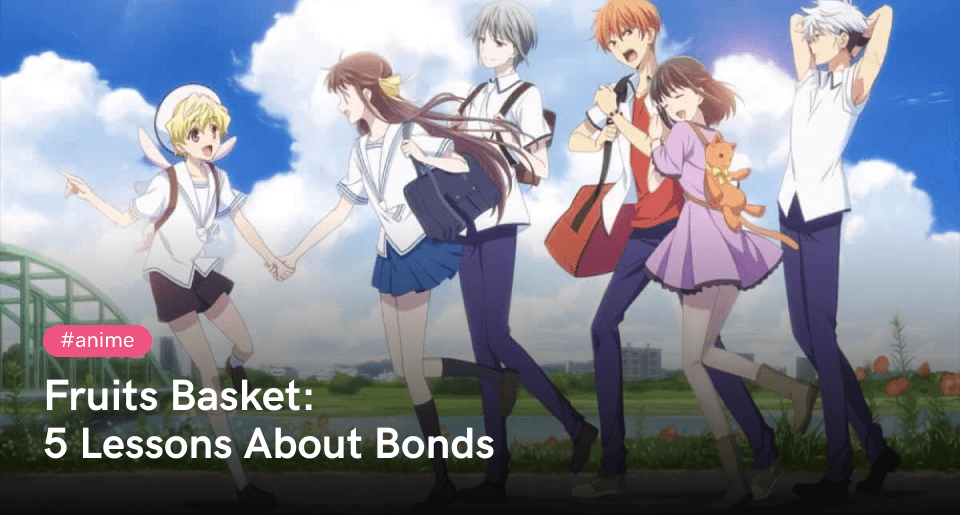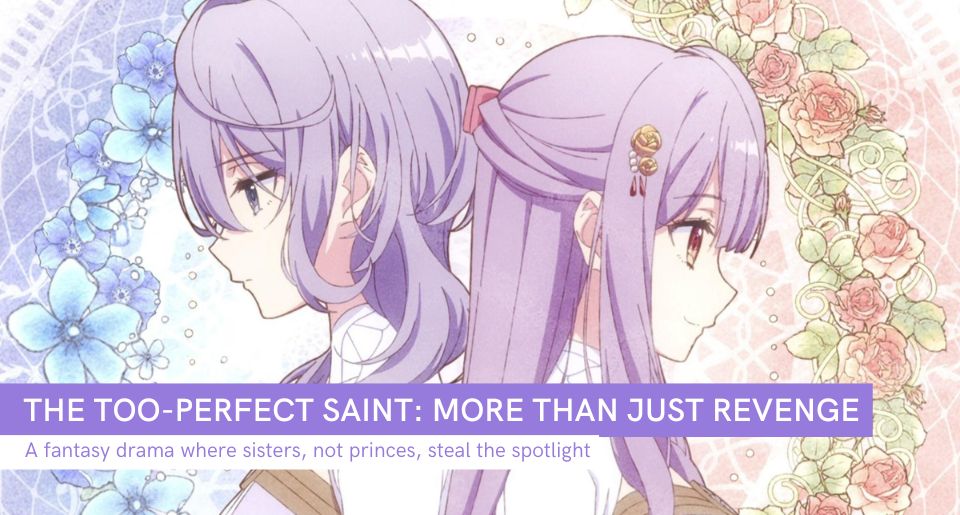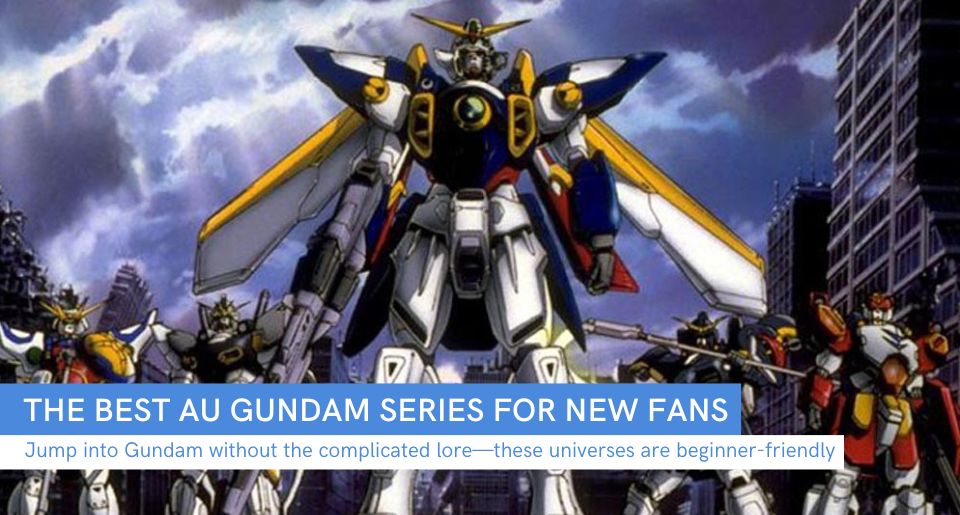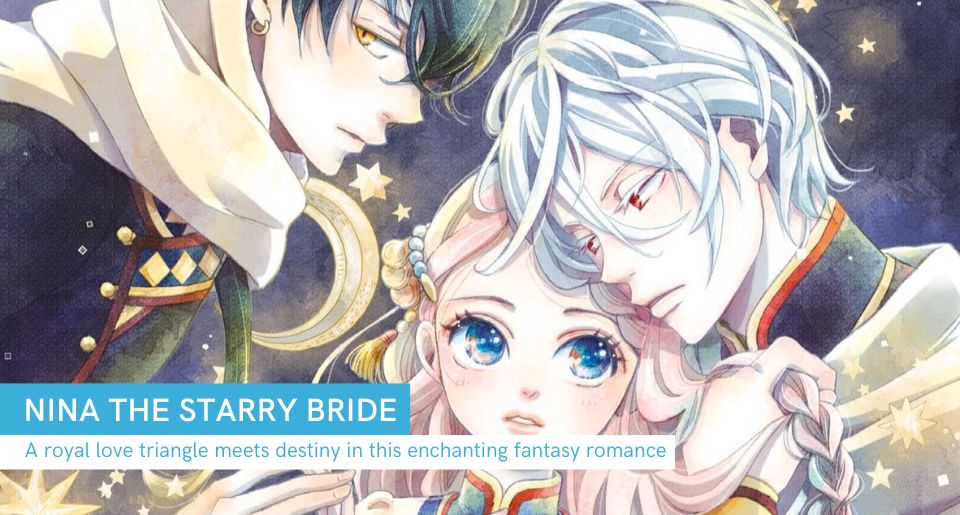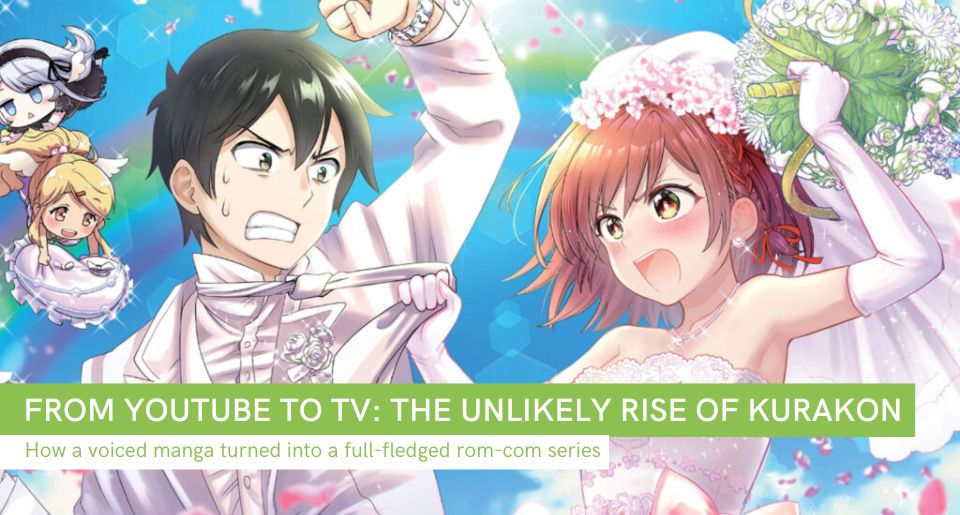“Manga? Anime? They’re just for kids.”
How many times has someone casually dismissed the fandoms you care so much about like this?
One time too many, no doubt.
But don’t worry. We’re here to promote greater understanding when it comes to these two hallmarks of Japanese culture.
After reading this blog post, you’ll be able to politely point out that manga and anime can very often be both educational and inspirational — to people of all ages.
You’ll be able to explain that one particular franchise has important life lessons about human relationships that are just waiting to be discovered.
Your secret weapon in your quest for greater understanding?
Fruits Basket!
Note: This post contains spoilers for the Fruits Basket manga and anime remake of 2019.
What is Fruits Basket?
Fruits Basket is the story of orphan Tohru Honda and her relationship with the Sohma family, whose members suffer from a terrible curse: they transform into various animals of the Chinese zodiac whenever they hug a member of the opposite sex.
It’s a perfect mix of romance, humor, and drama, with fans of all ages and from all walks of life (despite its traditional classification as a shoujo media property).
The first anime adaptation back in 2001 remains one of the decade’s strongest and most iconic. The 2019 reboot, not to be outdone, was a mainstay on seasonal anime polls during its run — even snagging Anime of the Season for its third and final cour in Spring 2021.
Fruits Basket and bonds
One of Fruits Basket’s greatest strengths is its truly memorable characters and their development as the story progresses.
This is most apparent when it comes to a very specific theme:
Bonds.
Fruits Basket is all about the bonds that exist between people, and the various convoluted forms they can take.
Obviously it’s not all black and white when it comes to relationships, so for a popular anime to delve so deeply into the concept (and oftentimes produce rather unconventional results, as you’re about to see) is truly a sight to behold.
Here’s 5 crucial lessons that Fruits Basket can teach you about bonds and the human experience.
#1: Blood isn’t always thicker than water
For many of us, family is everything. It’s what frames our past, nurtures our present, and shapes our future.
Think about it. How many times has your path through life been influenced by what your family says, if not what they presumably feel? Whether it be school, work, marriage, or even hobbies and interests, we base a lot of our decisions on family sentiment and advice.
Still, the harsh reality is that not everyone can be on great terms with their own flesh and blood.
Though the warm color palette and charming art style would have you imagine otherwise, Fruits Basket isn’t exactly full to the brim with scenes of happy family life.
The Honda family: Friend or foe?
One of the most prominent plotlines in Fruits Basket is that Tohru’s bonds with the Sohmas are much deeper than those that she shares with her own flesh and blood. She sees the Sohmas as an extended family of sorts, particularly when it comes to the cursed members of the zodiac.
That’s not to say the Hondas and the Sohmas have ever been particularly close, though — in fact, whether or not they even know about each other’s existence beforehand is up for debate. No, the strong bonds actually blossom from a mere chance encounter, as the Sohma gents literally stumble upon Tohru living in a tent in the woods — on their estate, no less!
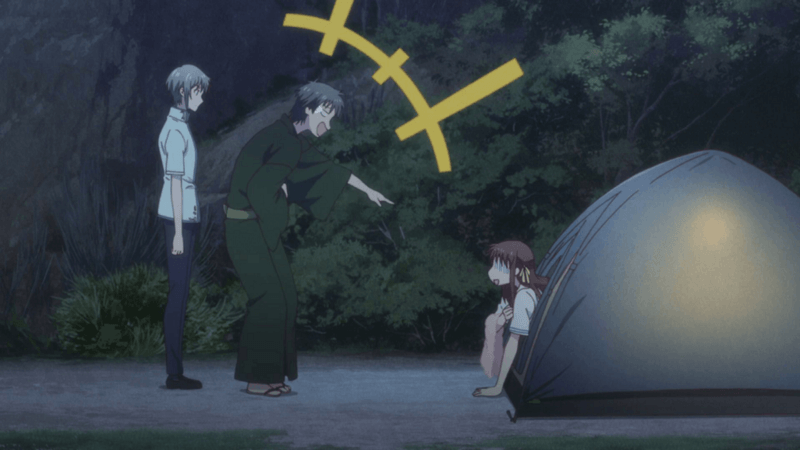
The fact that Tohru calls a tent her home to begin with is itself an indication of just how strained her real family ties are. Between the unfortunate death of her mother and father, an aunt who resents her for being “reckless,” and a paternal grandfather whose care she feels she can’t reciprocate (which makes her start living in the tent in the first place), it’s not exactly a picture-perfect household, is it?
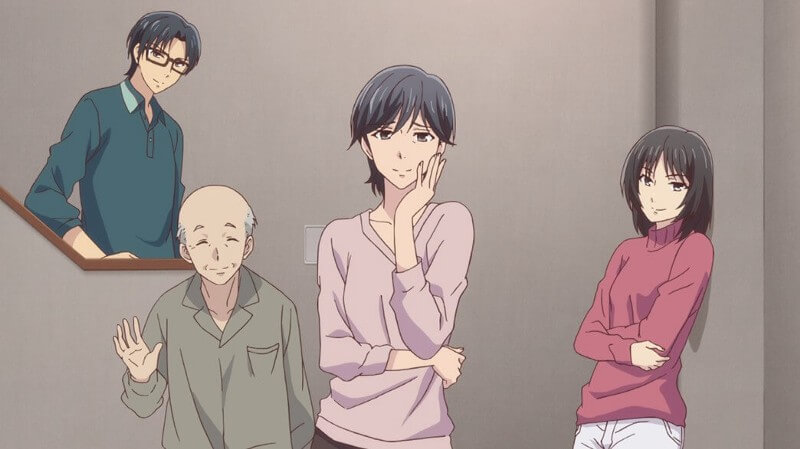
Couple all that with the fact that Tohru eventually decides to live with the Sohmas — a family she’s known for a much shorter time— and it’s easy to see how blood really isn’t always thicker than water.
Taking all that into consideration, you really get the feeling there’s a deeper meaning behind the iconic lyrics in the second season’s opening theme song, Home:
You’re my home, sweet home…
No matter how long we’re apart,
You’ll always be where my heart returns to.
The Sohma family: Worlds apart
It’s important to note that, despite the “family” tag, not all of the Sohmas are related by blood. With 150 members to their name, it might be easier to think of the Sohmas as a prominent, influential clan from the days of yore.
Much of the drama in the series comes from the bonds that the cursed Sohmas share with their real family, hurdles they need to overcome, and the positive effect that doing so has on them. It’s a tale of two extremes for many of them: Either their real parents absolutely adore them, or they positively despise them. There’s no in-between.
In that sense, the Sohmas and the Hondas might not be so different after all. It’s a testament to just how universal the dichotomy of bonds and bloodlines can really be.
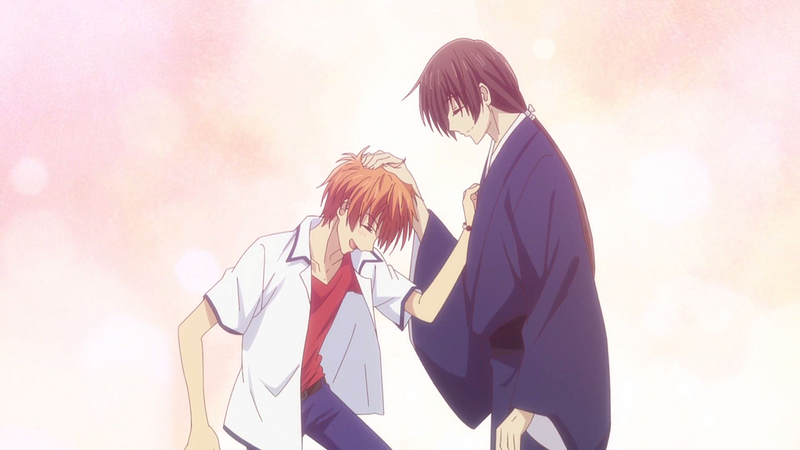
Kyo’s relationship with his adoptive father Kazuma Sohma is one of the best examples of this dichotomy at work. They share a deep bond, but not a bloodline — and yet that bond is stronger than oak.
Compare that with Kyo’s estranged relationship with his biological father, who can’t even be in the same space as him without spewing insults and other vitriol. Considering the latter blames Kyo and the zodiac curse for the death of his wife (Kyo’s mother), it’s not exactly a bond worth salvaging — or even missing.
#2: Devoted relationships don’t always require romance
Two people can mean the world to each other without there being even the slightest hint of romance. In fact, someone’s mere presence can be more touching and empowering than any words or actions ever could.
Indeed, there’s definitely “love beyond romantic love.” All it takes is mutual devotion and understanding — as you’re about to find out.
"I am fortunate to have a lot of love in my life, fortunate to recognize it, and to be able to return it; yet none of it is “romantic.”
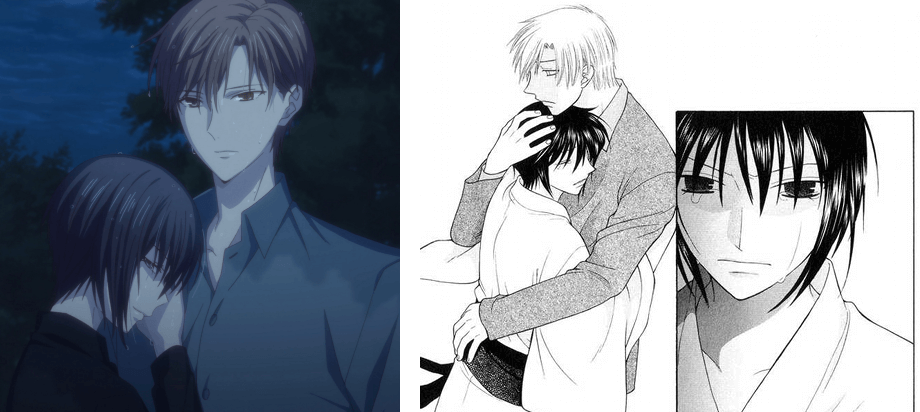
Akito & Kureno: Neither here nor there
Akito’s position as the god of the zodiac and head of the Sohma family means that she and Kureno mostly share a master-servant type of bond. Kureno, though technically free of the Sohma curse, stays with Akito out of pity and guilt; Akito exploits this and keeps him by her side all the time, knowing he’ll tend to her every whim.
Indeed, no love lost there.
In fact, when it comes to love, they each find it blossoming elsewhere: Shigure has harbored feelings for Akito for years, but her closeness with Kureno irks him so much that he pushes her away. Kureno, meanwhile, feels an instant attraction to Tohru’s best friend Arisa Uotani when they first meet — but his devotion to Akito is too strong for him to pursue it.
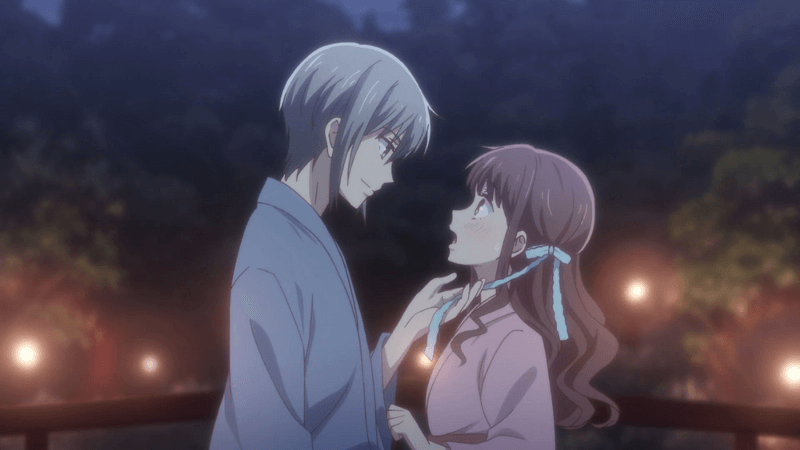
Yuki & Tohru: The missing piece
Yuki has always battled with loneliness, having spent most of his childhood in isolation. Even after entering high school he lacks any real friends aside from his Sohma brethren.
It would be fair to say that Tohru completes Yuki.
Not only is she his confidante before he finds his solace in the Student Council, she’s also the only one to treat him like an equal. There’s no walls between the two of them.
But although Yuki and Tohru do truly cherish each other, it seems that romance is simply not written in the stars for them. Yuki tries, yes, as evidenced by several intimate scenes early on in the anime. But he eventually recognizes the true nature of his feelings and gives up on his pursuit.
Why, you ask? Well, that leads us to Lesson #3…
#3: Parental figures can be any age
The consensus on parental figures is clear: They’re irreplaceable. They’re someone you can turn to for advice and guidance when the going gets tough. Someone who makes you feel safe and secure, because you know they’re watching over you.
But as Fruits Basket demonstrates, a parental figure doesn’t necessarily have to be your actual mother or father — or even older than you, for that matter.
Yuki & Tohru: A special kind of love
Beyond Yuki’s cool, calm exterior dwells a sad emptiness and loneliness. Then again, with a mother who practically abandons him for money, an older brother who ignores his very existence, and an entire childhood spent cooped up in a room and sealed off from the world, can you blame him?
All Yuki ever wants is a parental figure in his life — a pillar of support who loves and looks after him, like no one else has before.
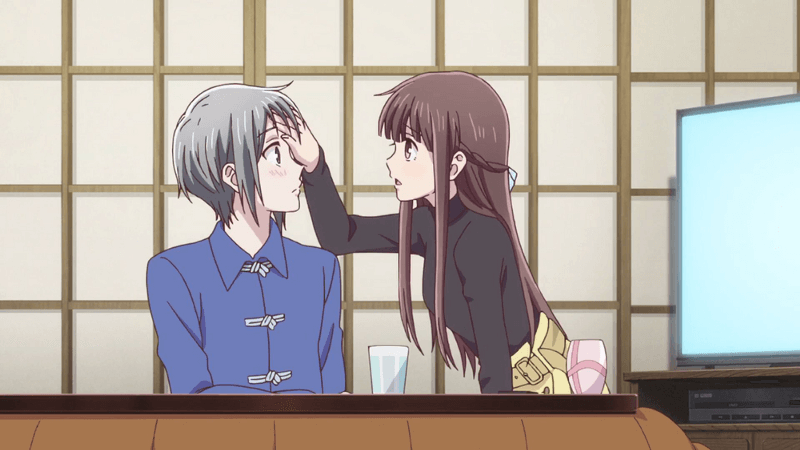
Tohru is the one who fills that void for him. She shows him the kind of unconditional love that any parent should shower their child with. And while Yuki knows deep down how out of the ordinary it is to see a classmate in that light, there’s no escaping the warmth he feels from it.
In fact, so devoid of maternal love is the young Sohma that he initially mistakes the feelings developing within him for romantic affection (a sad reality in itself). It’s only after noticing how Kyo acts around Tohru that he’s able to see the light — and take a step back to let destiny weave its tapestry.
It takes real strength to be able to understand and follow your heart like that, especially with the way love (of any sort!) can be so blinding. It’s a pretty good indication of just how much love — not just the romantic kind — that Yuki feels for (and from) Tohru.
Pretty ironic, considering how absent love was in his own childhood.
Still, he’s able to pull it off because he’s Prince Yuki. His affection for Tohru will help him become a better person, no doubt, for whoever he ends up with in the future.
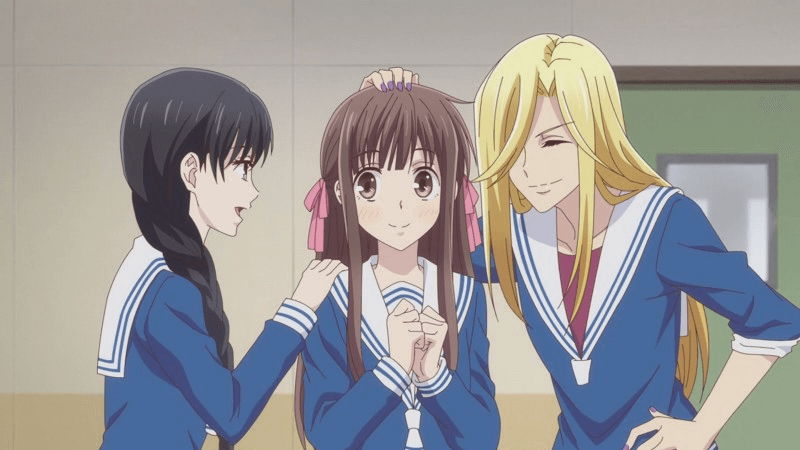
Saki & Arisa: Watching over you
Tohru’s best friends, Saki Hanajima and Arisa Uotani, are reliable parental figures in their own right. They’re extremely protective of Tohru, treating her like their own flesh and blood ever since her mother’s tragic passing.
And just like how many mothers and fathers are initially skeptical of their daughter’s suitors, Saki and Arisa make doubly sure that Tohru’s is up to snuff. The poor guy has to literally gain the two classmates’ approval before the relationship can even get off the ground!
#4: Superficial bonds do not last
Relationships are quick to blossom if the feeling and timing is right, but without proper foundations they wilt just as easily.
Akito Sohma learns this the hard way.
Akito & the zodiacs
Akito’s bonds with the zodiac are the very epitome of superficial, stemming only from the common thread that is the curse itself.
She has no regard for the other zodiacs’ well-being — she’s their “god,” after all, so in her eyes they’re automatically inferior to her. Akito forces them to do her bidding; if things don’t go her way, there’s hell to pay.
Obviously these bonds aren’t born from mutual trust and loyalty, as should normally be the case; rather, they’re slapped together out of fear and denial. In fact, Akito can barely hold a conversation with the zodiac members without things descending into simple malice and animosity.
As such, when the curse breaks, the bonds disappear without a trace as if they never existed at all. You can’t lose what you never had, right?
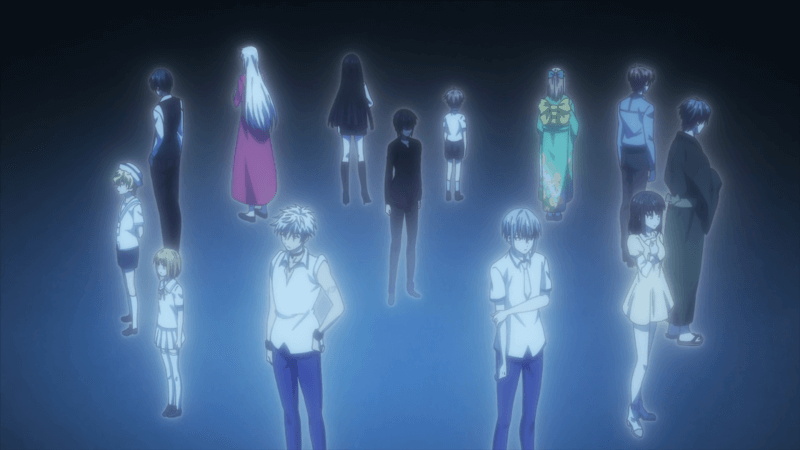
And so, when all is said and done, Akito is left with nothing but the mere matriarch status that she flaunted so much. She continues her duties as head of the family, albeit far removed (both physically and emotionally) from the former zodiacs — most of them, no longer bound to the superficial generations-old relationship, make it a point to distance themselves from her.
#5: Bonds should be forged, not forced
The lonely god of the zodiac wanted friends he could call his own. The cat is the first one he makes; the other zodiac members follow suit thanks to the banquets he holds every year thereafter.
But after many moons, the cat finds itself near death. The god, wanting to make their friendship last forever, promises to hold a banquet in every lifetime the zodiac members live.
The cat opposes this and weeps, being already content with the life it has led — and the other zodiac members shun him for it.
In the end, the promise becomes nothing more than a bane for the Sohmas.
Why?
Because the bonds of friendship that they’re saddled with (read: forced into) aren’t theirs to begin with — they belong to zodiac members from the past.
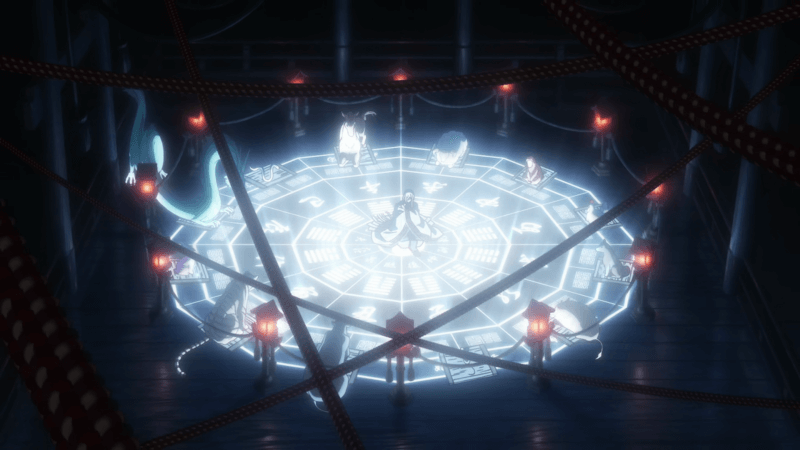
The Sohma bloodline — not a bond — is what dictates their loyalty to the god of the zodiac. The ancient promise to be together for all eternity only succeeds in further binding them to each other against their will — but it corrupts over time as the parties involved change.
Thus, when the curse breaks, the zodiac Sohmas finally become able to live their lives in peace — independent of the god of the zodiac (Akito).
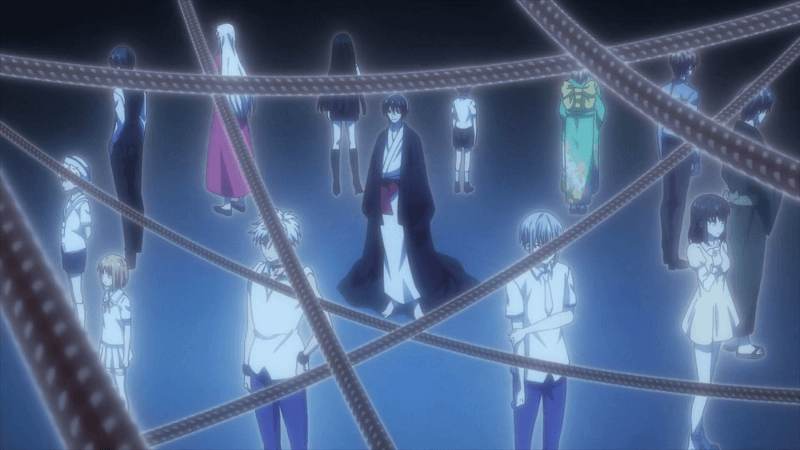
Recap: 5 Lessons About Bonds From Fruits Basket
Here’s the 5 lessons about bonds we covered in this blog post:
- Blood isn’t always thicker than water
- Devoted relationships don’t always require romance
- Parental figures can be any age
- Superficial bonds do not last
- Bonds are forged, not forced
With an entire manga series and two separate anime adaptations bringing the story of Tohru Honda and the Sohma family to life, chances are there’s even more life lessons waiting to be discovered!
Fruits Basket: Educational & Inspirational
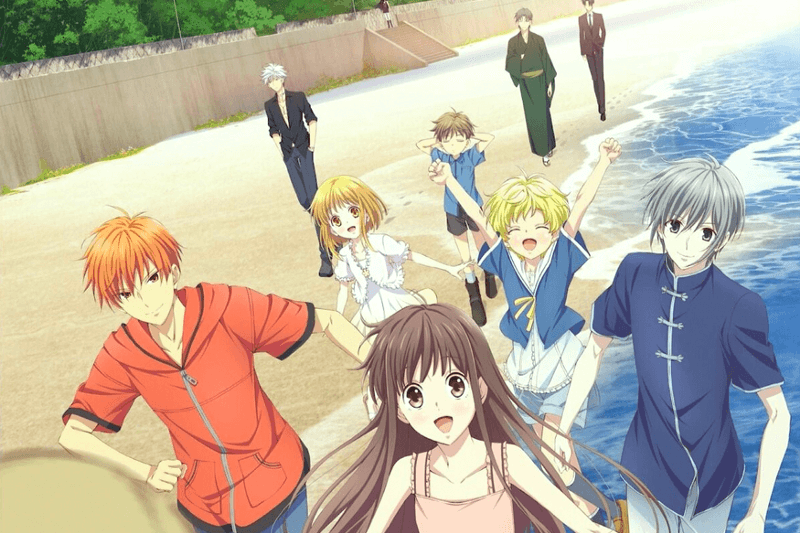
Fruits Basket is more than just a captivating story with a colorful cast of characters: it also has a lot to teach you about relationships and the human experience.
With Tohru and the Sohmas tackling such real, identifiable concepts, no doubt Fruits Basket will be an inspiration to many of its viewers (and readers!).
Over to You!
What are your favorite Fruits Basket moments?
How do you normally respond when someone says manga and anime are “just for kids”?
What other takeaways do you have from Fruits Basket?
Let us know in the comments or drop us a line on social media (Twitter, Instagram, Facebook)! We’d love to hear from you!
ZenPlus is your one-stop shop for all things Japanese. Click here for manga volumes, anime DVDs, figures, and other merch from the Fruits Basket franchise!
You can watch Fruits Basket on Crunchyroll, Netflix, and Pinterest.
About the Author
Cristy is a freelance writer and artist who enjoys drawing manga and trading crypto for a living. She also enjoys lurking around anime, manga, and seiyuu-related fandoms in her spare time.
This blog post was edited and published by ZenPlus.
Images courtesy of Crunchyroll.
Other articles you'll enjoy
For more life lessons from anime, check out the articles below:
- Tokyo Revengers' Mikey: 5 Hard Facts You Must Never Forget
- 5 Anime Hikikomori Who Help You Bounce Back
- Uramichi Oniisan: Top 6 Life Lessons From His Dark Mind
Thanks for reading!
....................................................

